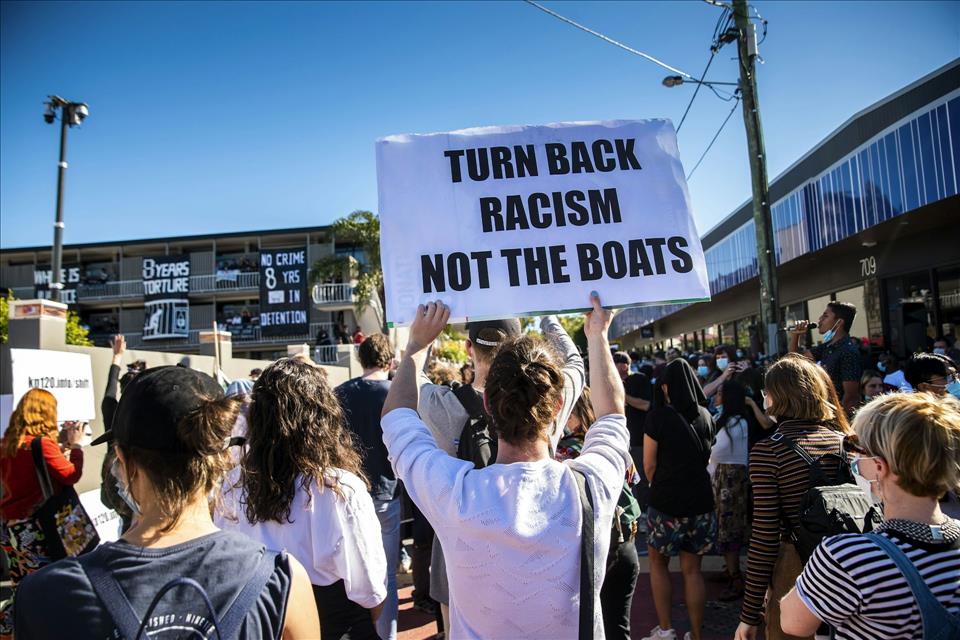
Trump Wants Australian Data On Migrant Crime. This Will Only Scapegoat Vulnerable People
The administration's stated purpose is to assist US allies in reforming their immigration systems and curbing what the US labels“mass migration”. In a briefing to explain the action, a US State Department spokesperson called mass migration an“existential threat to Western civilisation and the safety of both the West and the world”.
This request is unprecedented and extremely harmful.
First, it is embedding the Trump administration's criminalisation and mass deportation of migrants into its diplomatic relations with other countries.
Second, the Trump administration's directive is perpetuating a false narrative that migrants are to blame for any perceived increase in crime rates.
Escalating US crackdownsEmpirical research over decades in the US shows migrants do not offend at disproportionate rates, despite persistent political claims.
Nonetheless, the Trump administration continues to escalate its harsh crackdown on migrants under the justification that US cities are under siege. This has enabled the government to take actions that critics say violate international law and curtail domestic civil liberties, including:
- deporting migrants without due process detaining migrants with no criminal history for long periods, and separating families.
In addition, the US government has also taken lethal military action against boats in the Caribbean Sea and eastern Pacific Ocean, alleging“narco-terrorists” are flooding the country with drugs.

Workers stand handcuffed after being arrested by US Immigration and Customs Enforcement in Louisiana in June. US Immigration and Customs Enforcement/AP Australia's own harsh response
Australia is described in the US State Department briefing as a“great ally”. The spokesperson explained the US government's intent in collecting migrant crime data:
In Australia, public inquiries and criminology research have consistently found claims of a link between migrants and crime to be exaggerated and harmful. These studies often call for stricter media regulations on inaccurate crime reporting to avoid scapegoating marginalised communities.
Yet, successive governments have continued to expand their powers to deport migrants under the guise of public safety. This approach is a form of“crimmigration” – when immigration enforcement is incorporated into crime control.
It creates harsher consequences for non-citizens who commit offences, compared to citizens. In addition, many people who have not been convicted of a violent crime – and sometimes no crime at all – have been caught up in these exclusionary processes.
In 2023, the High Court ruled in the NZYQ case that continuing to detain individuals who cannot be removed from Australia is unconstitutional. This resulted in the release of hundreds of non-citizens (some of whom had no convictions, or had convictions and had served their prison sentences) into the community on bridging visas.
The action ignited heated parliamentary debates about a supposed existential threat to Australian society. In many cases, the debates featured divisive language and unsupported claims that are characteristic of the current US administration.
Emergency laws were hastily passed to respond to the situation. These resulted in punitive measures, including:
- a new visa regime with parole-like conditions new criminal offences with mandatory minimum sentences, and preventative detention modelled on existing counter-terrorism provisions.
These developments show the potential for Trumpian-style immigration approaches to take hold in Australia. The recent anti-immigration rallies across Australia – in addition to the adoption of the“mass migration” terminology – suggest there would be fertile ground for this in parts of society.
But it is not clear to us how enhanced visa cancellations and deportation powers improve community safety.
Every day in Australia, people are processed by the criminal justice system and returned to the community. The government is not taking responsibility for effective crime prevention by targeting non-citizens for punishment and exclusion. This will not make Australia safer. It will only trigger safety concerns for multicultural communities.
A more rigorous and evidence-based approach is needed to address the social determinants that increase the risk of marginalised communities coming into contact with the criminal justice system. This includes systemic racism.
Migration is a feature of our globalising world and does not represent an existential threat to Western civilisation, as claimed in the US State Department.
Retreats into ultra-nationalist rhetoric and the scapegoating of migrants are never the answer.

Legal Disclaimer:
MENAFN provides the
information “as is” without warranty of any kind. We do not accept
any responsibility or liability for the accuracy, content, images,
videos, licenses, completeness, legality, or reliability of the information
contained in this article. If you have any complaints or copyright
issues related to this article, kindly contact the provider above.


















Comments
No comment